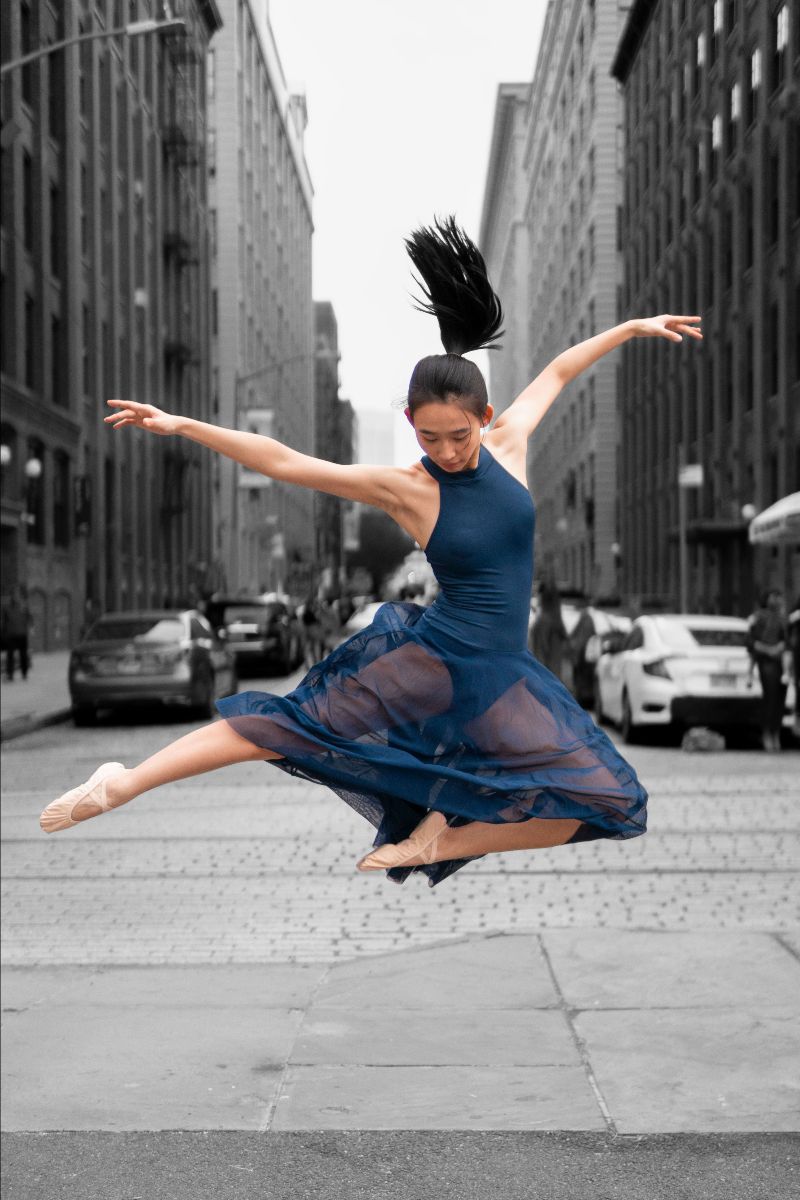What’s The Best Idea For Passive Income Right Now?

Someone explained the definition of passive income to me a long time ago as “a way of making an income while you are sleeping.” Whoa!! That would be my dream job. Get it? Dream job. hahah.
That doesn’t mean there’s no work involved – there’s a lot of time, energy, and work to set it up, but once it’s done, you launch it and watch the dollars roll in. Well…maybe not at first, but that’s the goal. Also, it’s not completely hands-off; it often involves some additional labor along the way, but not that much.
The official IRS examples of passive income used to be two things: A rental property, or a business in which you do not actively participate…i.e. royalties, stock dividends…etc. But not anymore. Passive income now takes many forms thanks to the internet. In fact, if you Google “best passive income ideas in 2023” you’ll get a list of what’s working and thriving in the market right now. But, let’s dig a little deeper and see what the #1 best passive income idea is out of everything out there.
Ready? Drum roll, please… the number one way to make passive income is Digital Course Creation.
Basically, it’s a popular strategy of figuring out what you have or know that others can benefit from and making an online course available for people to learn from you. Simple as that. Have you ever transformed your garage into an office space from scratch? Have you ever finished your first marathon? Have you ever lost 25 lbs with a simple eating habit? Ask this question to yourself…”what have I personally achieved that I could teach others?”
Let me tell you why. The E-Learning market is projected to hit $848.12 Billion at a CAGR (compound annual growth rate) of 17.54% by 2030. The demand was valued at $210.1 Billion in 2021. The expected growth is phenomenal and there are no signs of slowing down.
Why are e-learning and online courses so popular? Because people are curious, people love learning and they love learning in a non-traditional way: on their own time, in their own place, and at their own speed.
And why are the people creating these online courses? It’s summed up into 3 categories:
- They want to impact more lives with their message and create a lasting legacy.
- They want to create a sustainable source of scalable income independent of how much effort they are willing to put in.
- They want to ditch their day job or side-hustle and run a profitable business online that gives them more freedom.
Do any of these 3 jumps out at you? Which one? I would love for you to tell me more about it, but in the meantime, this is my new series called “Passive Income” where I, along with Amy Porterfield (Online Marketing Guru), will teach you all the ins and outs of creating an online course.
And before we go, let me address the big objection that we often hear: “But I don’t have anything to share that’s worthy of a course!”
That’s not true! Whatever industry or context you are in, you are an expert with unique insight that no one else has. You might not know it because it’s just part of your everyday life and you’ve been doing it forever so you take it for granted…but what you do is unique to a lot of people and they are dying to know what you know. Dive deep into the knowledge that seems so obvious to you, then get ready to share your journey and your findings.
Bottom line: people want to give you money for your expertise. Please, just LET THEM. That’s what this Passive Income series is all about.
Why Would You Run In The Rain?

Have you ever set a goal on the outer boundaries of what you think is possible? Then systematically pursued it? If you have, then you know: when you completely and wholly immerse yourself in the process of reaching that goal, you find yourself at your best…at your peak.
With our Peak Performance series, we’ve covered these key principles.
- Stress + Rest = Growth
- The power of developing optimal routines and systems
- Purpose
Everyone is unique and we all reach the peak of our growth differently – it needs to fit our unique style and specific demand of our goals. There are many ways to get there.
For me, what I am learning through all this is that I first need to show up. It’s been said and observed that the real secret of world-class performers is not the setting of goals and doing the daily routines that they develop…but the fact that they stick to them. They show up…even when it’s hard, even when they don’t feel like it, even when there’s a great excuse not to show up.
I remember sitting in my car as I was stopped at a red light staring at a guy who was jogging in the pouring rain. I thought to myself, it’s a great day to run on a treadmill dude…but he showed me something more. He demonstrated to me what showing up looks like. It’s the process of sticking to the commitment no matter what.
This interesting strength of showing up has a twist…it can only come from deep within, often rooted in something…something beyond ourselves, something more important than myself, something more beautiful, something more powerful and something more meaningful than I can explain or even understand.
What’s your something? What’s something that will make you want to run in the pouring rain?
Whatever it is, here’s my last piece of advice for you: START NOW. I could write a whole other blog about how one of the biggest enemies of peak performance is procrastination (maybe I’ll try to write that next week…)
But seriously – I recently heard this conversation with Tim Pychyl, an expert on the science of procrastination – according to his research, the key to defeating procrastination is getting started.
So what are we waiting for? A rainy day?? Even if it’s sunny outside, your run in the rain can begin right now – it all starts with showing up.
Let’s go to the peak!
Secret Source Of Your Extraordinary Strength

You’ve heard these crazy stories before. The real, documented cases of ordinary individuals displaying incredible feats of strength in times of emergency, including instances of people lifting cars to save lives. These incidents are often referred to as “super-human” or “hysterical strength.” When faced with extreme stress or life-threatening situations, the body can release a surge of adrenaline, which temporarily enhances physical performance beyond normal limits.
One of the most well-known cases of this phenomenon occurred in 1982 when a 20-year-old college student named Angela Cavallo lifted a 1964 Chevrolet Impala off her father, who was trapped underneath the car after it fell on him while he was working on it. Angela’s extraordinary display of strength and determination saved her father’s life.
Another remarkable case happened in 2006 in Tucson, Arizona, when Tim Boyle lifted a Chrysler minivan to rescue a six-year-old girl trapped underneath the vehicle after it accidentally rolled over her. Boyle’s quick action and immense strength played a crucial role in saving the child’s life.
So…this begs the question: does our body really carry the ability to perform such extraordinary strength? Is it in all of us? If so, how do we tap into it? The answer is yes, somewhere deep within, our body is able. But on an ordinary day, during ordinary circumstances, the body shuts down well in advance of its limits. Fear, fatigue and pain act as protective mechanisms for our bodies. These sensations signal to us that if we continue with an enormous challenge, there’s a good chance we’ll fail or injure ourselves…so it forces us to stop.
Until…
We transcend beyond ourselves, like when a circumstance forces us to find a PURPOSE beyond our “self” into something that’s bigger than ourselves. A determination to do everything possible for others in these situations can make a way for you to perform at your highest level.
So, what do we learn about the secret source of reaching our Peak Performance?
- Our own “ego” or “self” serves as a protective mechanism that holds us back from reaching our true limits.
- When faced with great challenges, our ego is biologically programmed to shut us down, telling us to stop and protect ourselves.
- By focusing on a self-transcending purpose, or a reason for doing something beyond our “self,” we can override our ego and break through our self-imposed limits.
- To the extent you can, link your activities to a greater purpose when you are faced with challenges and your mind is telling you to quit. Ask yourself why, and if the answer is for someone or something greater than myself, you’ll be more likely to push onward.
- Thinking less about yourself is one of the best ways to improve yourself.
There’s something so poetic about all this – you really can be a superheroic version of your best self…as long as it’s for someone else.
Once again, it takes me back to one of BOS Media’s favorite quotes, from Coach Jimmy Valvano: “Every single day, in every walk of life, ordinary people do extraordinary things.” But your ultimate extraordinary power will only be truly unleashed when it’s for others.
Optimizing Your Routine

In the crowded locker room, 30 minutes before entering a sold-out stadium in front of thousands of roaring fans, he starts his routine. First, some calisthenics…like a seasoned prizefighter, hopping from side to side. Next, wide circles with his arms, then some stretching and grip work. He’s got to make sure his blood is flowing, his joints are loose and his muscles are warmed up. All are signals that his body is ready.
Now, he’s focusing on his mind…it’s still racing, he’s got to get into the right headspace. He’s taking deep breaths and trying to cultivate a specific psychological state…let’s call it “the zone.”
He finally enters the arena, the lights dim…the crowd continues to roar. With a flash of light, the air fills with the sound of over 50,000 fans screaming.
His name is Matt Billingslea. He’s the drummer for Taylor Swift. The show starts and they both ride this wave of energy – one of the ultimate examples for our current series on Peak Performance.
Do you have a routine? I was forced to have one all my life. And I dreaded it. The same thing everyday over and over again. I couldn’t wait to run my own business and be my own boss someday so I could wake up whenever I wanted, and work on my projects any time of the day and create my own schedule depending on how I felt, with the flexibility to accommodate whatever I had going on.
Interesting thing is, once I became my own boss and got that freedom with my time, I naturally fell into a rhythm. The routine made me feel productive and efficient. It made me focus and allowed me to operate at a higher level. So strange, I had to find out why. And this is what I’ve learned during my research.
Having a routine is imperative to reaching peak performance because it provides structure, consistency, and optimization of time and resources. Here are several reasons I found why having a routine is important:
- Efficient use of time: Having a routine helps you allocate time effectively and prioritize tasks. When you have a set schedule, you are less likely to waste time on unproductive activities or get overwhelmed by decision fatigue.
- Consistency and discipline: A routine instills a rhythm in your daily life. By following a consistent pattern, you develop good habits and reduce the likelihood of procrastination or distraction.
- Reduced stress and increased focus: Knowing what to expect and having a plan in place reduces stress and anxiety. When you have a routine, you can focus more on the task at hand, as your brain doesn’t need to spend as much energy on figuring out what to do next.
- Enhanced mental and physical well-being: A routine that includes healthy habits, such as regular exercise, sufficient sleep, and balanced meals, promotes both mental and physical well-being. When you take care of your body and mind, you are better equipped to perform at your best.
HOWEVER, one final note before we go – there’s definitely a difference between a routine and a rut. Routine is about healthy habits that provide the structure to support growth; a rut is when the routine becomes stale and actually inhibits growth.
If you feel like you’re in a rut, take Taylor Swift’s advice: Shake It Off, and get back to the Love Story with a fresh routine. Are you Ready For It?
Do You Have The Courage To Rest?

When I ran my first marathon, I “hit the wall” at mile 20. Hitting the wall in marathon language means your body just simply runs out of energy. It’s an awful experience. When you hit it, it really does feel like running into a brick wall. I guess that’s where they derived the phrase from. Your legs feel like they are made of jelly, every step is an absolute agony of will, and you start to seriously doubt that the race even has a finish line. It usually happens due to insufficient training. I also thought it was a mental error of not truly believing I could do it.
So, I had an idea for my next training. Overtrain. Brilliant, right? Instead of gearing up for 26.2 miles, why don’t I train harder for my body to last 30+ miles? Also, it will help my mental game knowing that if I can run 30, I can surely last 26.2 during the race.
Well, big surprise. Your body actually doesn’t like that. In fact, if you look at all the top training schedules, the last couple of weeks before the race is all about tapering down in miles and prioritizing rest.
In 1954, everyone knew that running a mile in under 4 minutes was just not humanly possible. No one had ever done it, and no one ever would. Some came close – 4:14 in 1913, 4:06 in 1934, and 4:01 in 1945. But the last record stood for almost a decade, the best runners from all over the world tried with incredibly intensive power training which was designed specifically to break the barrier. But they all came up short. Eventually, the physiologists and physicians declared it impossible…they said the man’s heart and lungs could not withstand the demand.
Until British track star Roger Bannister did something completely out of the norm with his training. Two weeks before the race, he made what seemed like a very questionable decision and abandoned his training plan of intense intervals on the track and took off to the mountains of Scotland to…wait for it….that’s right….rest.
The crowd erupted with the 3 minutes, 59, and 4/10 of a second, announcement. Roger Bannister had broken the greatest barrier in human history. And he did it due to his courage to rest.
Why are we talking about rest? Because our current series is about reaching Peak Performance in whatever we are doing. Whether it’s sports, business, or life, we want to maximize our efforts to reach our very best. This is the formula: Stress + Rest = Growth. Learn more about the formula here, and learn more about stress here.
Avoiding rest will put you on a fast track to burnout. To keep us motivated, engaged, and passionate about something requires rest. I learned this the hard way. It will make a difference between sprinting through the finish line with your hands in the air in victory vs being carried out on a stretcher in total defeat.
On a practical note, here are three tips to having better rhythms of rest:
- Remember to breathe. It sounds obvious, but since the pandemic I’ve had to consciously remind myself of this. In the midst of all the hustle and rushing to get to the next task, don’t underestimate the power of a deep breath.
- Ignore the guilt. We love being productive, so any pause inevitably comes with a guilty voice condemning us for any perceived waste of time. Don’t listen. Rest is productive.
- Add “Nothing” to your schedule. Literally, write the word “Nothing” into your calendar. That way, when someone tries to make an appointment with you during that time, you can say, “I’m sorry, but nothing is more important than my meeting with you.”
Here’s to having the courage to do everything necessary to reach our peak – let’s get out there and rest!
Stressed Out? Great, You Are On Your Way

Here’s a crazy study. When injecting rats with ovarian extract, their adrenal cortexes became enlarged and their immune systems were activated. What does that even mean? I actually have no idea. However, when injecting rats with just plain saline, it triggered the same response.
So…what did we learn? We learned that by doing something that shocked or caused pain and discomfort in the rats (poking it with a needle), it would trigger an innate stress response which produced desirable effects, strengthening the specific part of the body that was under duress.
They learned that stress isn’t just harmful, it can also serve as a stimulus for growth and adaptation. So….
Stress stimulates growth.
In fact, they did a further study on this concept of stress to find out how someone can become a top expert at something. A team of researchers traveled to Berlin, Germany and embedded themselves among violinists at the illustrious Global Music Academy. This academy had an international reputation for training many of the world’s best violinists.
They examined the differences between the violinists who practiced about the same amount of time (50 hours a week). The best violinists spent significantly more time intensely focused on mastering something they were struggling to do and remained totally present when doing so. The best violinists were practicing more “deliberately” than anyone else. So…
Skill comes from struggle.
To take it one step further, top performers, just like everyone else, feel the nerves, anxiousness, and even a bit of fear that comes with competition. But the difference is, these elite athletes/performers interpret the stress and the sensations that come with it as an aid to their performance; it prepares them to get the most out of their bodies. The elites exhibit a challenge response to stress, and, as a result, it helps them channel their heightened physiological reaction to explosive execution.
So, what do we know so far about “Peak Performance?” Stress + Rest = Growth.
Stress can be the ultimate stimulator to help us gain skills, as long as we have the right perspective and use it to our advantage. Stress is your friend pushing you to build, grow and perfect.
If you’re feeling stressed today, remember: we’re only nervous about the stuff we care about. Sure, it’s tempting to think about an alternate reality where we have nothing to worry about, but removing all stress would require eliminating everything that makes our work meaningful – like how the players on the bench are a lot less nervous than the players in the game.
Here’s to the good stress that inspires us to climb mountains and get to the peak!
Let’s Take It To The Next Level

I just joined a gym. It’s been a while since I worked out other than my running. And I thought I needed to strengthen not only my heart but the rest of my body as well. I am finding myself getting weaker and fatigued more quickly and I am starting to feel my age. And also, summer is coming up, so I obviously want to start shaping my body for the beach…trade in that gut for a six-pack. Hahaha. Trust me, I have a long way to go…but why not start now.
I’ve been at it for about 2 months and I’ve been tracking the weight and repetitions for each of my sets. At the beginning, I tried to find the right balance – I didn’t want the weights to be too heavy…my goal was to do more than one repetition and not get injured. But I also didn’t want to lift weights that were too light and have it just be a waste of time. That would just be the equivalent to what I’ve been doing all day – lifting my coffee mug to my lips. I would see zero results.
It took me a while to find that perfect weight to start… the amount I can somewhat manage that will leave me exhausted and fatigued, yet not injured. Also, if I lifted multiple times a day without much rest in between, I knew I couldn’t sustain it, and I would eventually burn out. It comes down to combining the stress you put on your muscles with just the right amount of rest to equal growth.
Stress + Rest = Growth
In the world of exercise science, this cycle of stress and rest is referred to as periodization. And the cycle looks like this:
- Isolate the muscle you want to grow
- Stress it
- Rest and recover
- Repeat
World-class athletes have perfected this cycle.
Now, I know what you are thinking…I am not a world class athlete, and I’m not all that interested in getting buff. But if you know me, you know that I wouldn’t be writing this if there wasn’t a deeper lesson to be learned. This is not just about muscle growth, this is a metaphor for any growth….intellectual growth, creative growth, and even productivity growth.
Diving deeper into this concept of periodization, I’m excited to discuss the secret to top performance. No matter what you’re into, let’s learn the principles that will lead you to being the best you can be at it. Our new series is called “Peak Performance” – let’s unpack and gain some insights into how to elevate our game.
Are you ready for this?! Let’s go to the peak together.